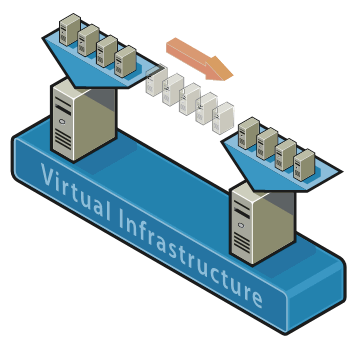 I've seen a lot of debate over virtualization of SQL Servers over the last couple of years, and I'm sure there's a lot more to come in the next few years. My opinion is that virtualization is a good idea, but it's not for everyone, not for every situation, and certainly not for every server.
I've seen a lot of debate over virtualization of SQL Servers over the last couple of years, and I'm sure there's a lot more to come in the next few years. My opinion is that virtualization is a good idea, but it's not for everyone, not for every situation, and certainly not for every server.
Recently I ran across an article from Ars Technica that was built out of some some discussions on their site from people involved in virtualizing servers at their companies. They published a five step guide to implementing a successful project. If you are thinking about a project, or even involved in one, I'd urge you to read this article.
I think they have some great advice, but what they present isn't any different advice than what you should consider with any new technology or project. Make sure it's for you, train your people, and recognize it's not a one-stop solution.
Most of the issues I've seen with SQL Server virtualization have involved one of two things. The biggest problem has been I/O, with users not beefing up that subsystem, and assuming it will work the same as it did with a physical server. The technology gets better all the time, but the scheduling of I/O across virtual machines often means that you need more I/O capacity than on a regular server.
The other big issue I see is that administrators or developers somehow think they are getting a "free" server by virtualizing. They load 3 VMs onto a server and wonder why the CPU doesn't handle the load in their virtual machine. There is not any magical multiplication of resources. A VM means you get a slice of the total resources you had before for the VM. And that means that you have to plan for that, and accept that if all your VMs ask for the CPU at the same time, they'll share it, and they'll all process slightly slower than if they were running under the host OS without any VMs.
Many of the servers I've managed over the years were lightly loaded, needing a fraction of their CPU, disk I/O, and memory at any given time. Virtualization would have greatly improved the efficiency of hardware spending, and power usage. It could do the same for you, if you stop to plan it carefully.
Steve Jones
The Voice of the DBA Podcasts

The podcast feeds are available at sqlservercentral.mevio.com. Comments are definitely appreciated and wanted, and you can get feeds from there.
You can also follow Steve Jones on Twitter:
Overall RSS Feed: ![]() or now on iTunes!
or now on iTunes! ![]()
- Windows Media Podcast - 32.5MB WMV

- iPod Video Podcast - 23.8MB MP4

- MP3 Audio Podcast - 4.9MB

Today's podcast features music by Everyday Jones. No relation, but I stumbled on to them and really like the music. Support this great duo at www.everydayjones.com.
I really appreciate and value feedback on the podcasts. Let us know what you like, don't like, or even send in ideas for the show. If you'd like to comment, post something here. The boss will be sure to read it.


